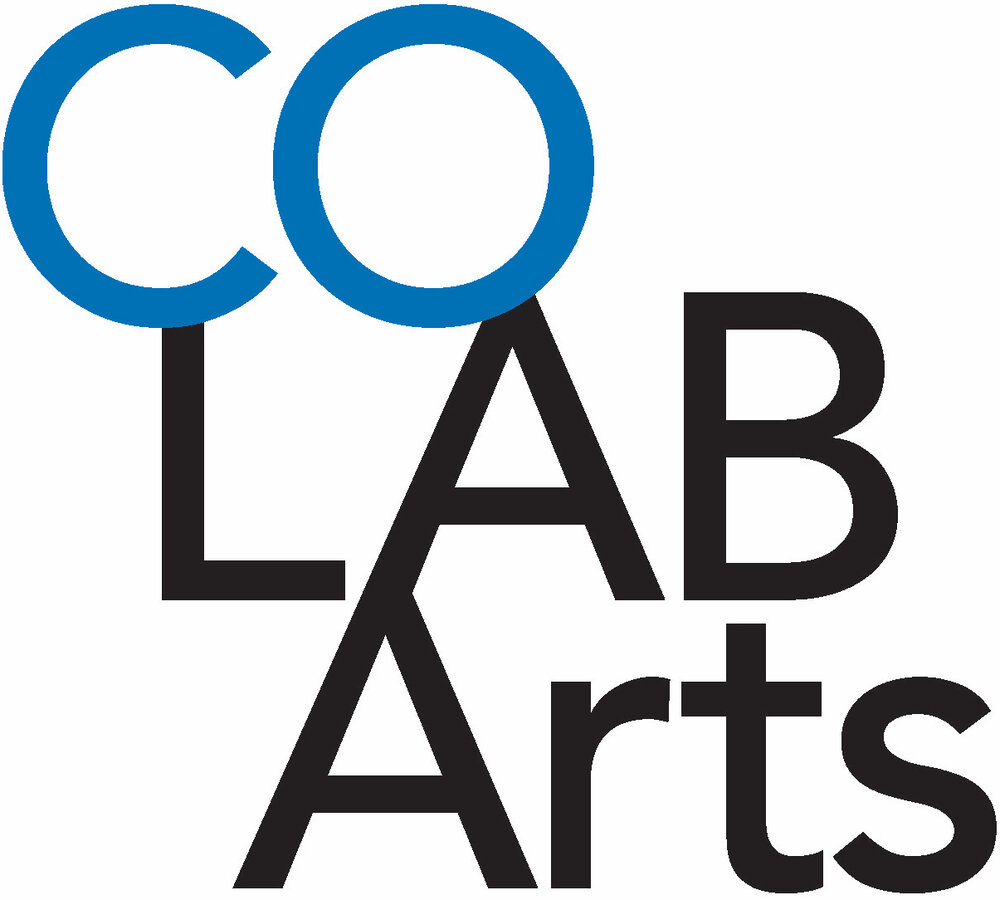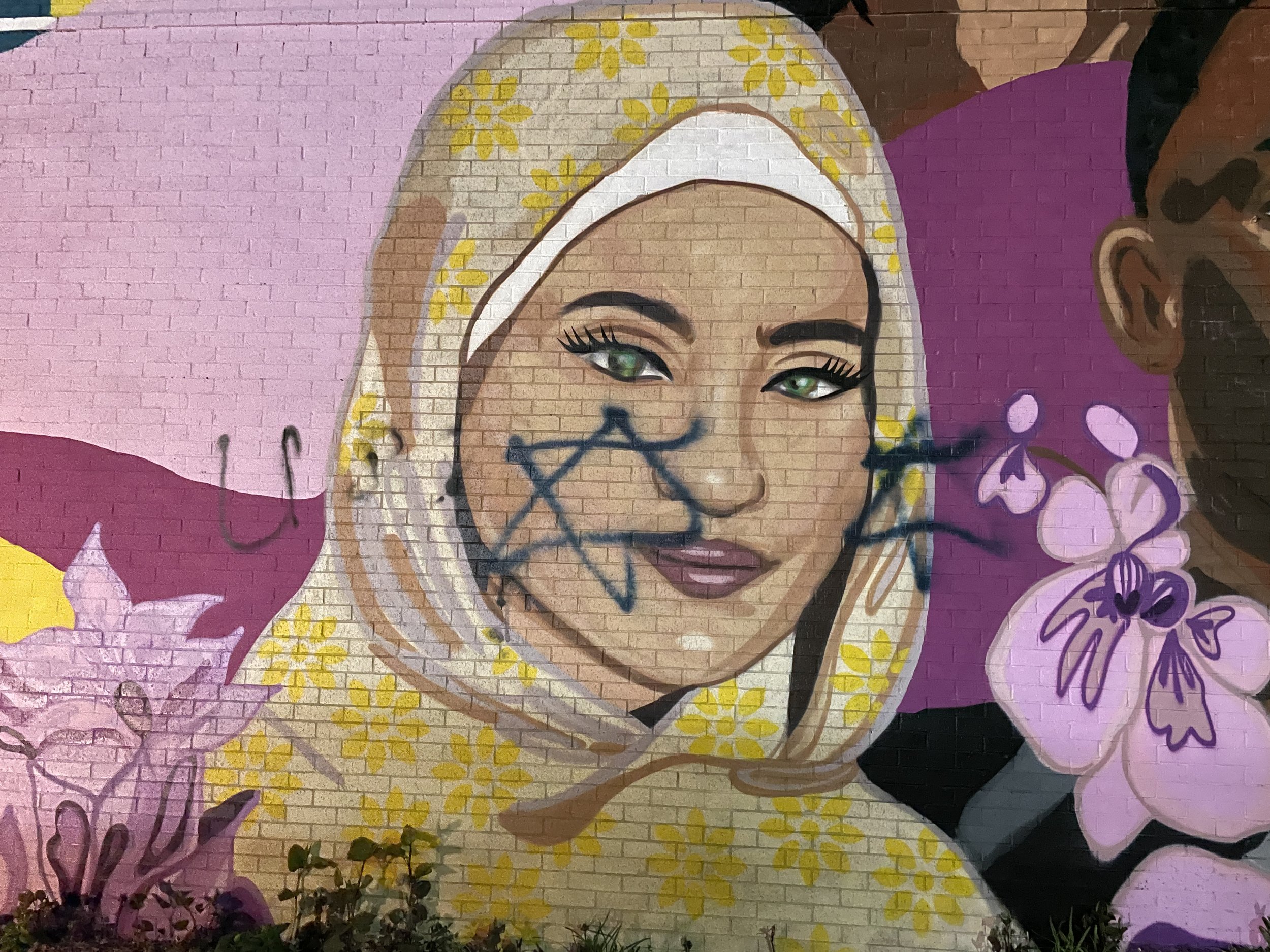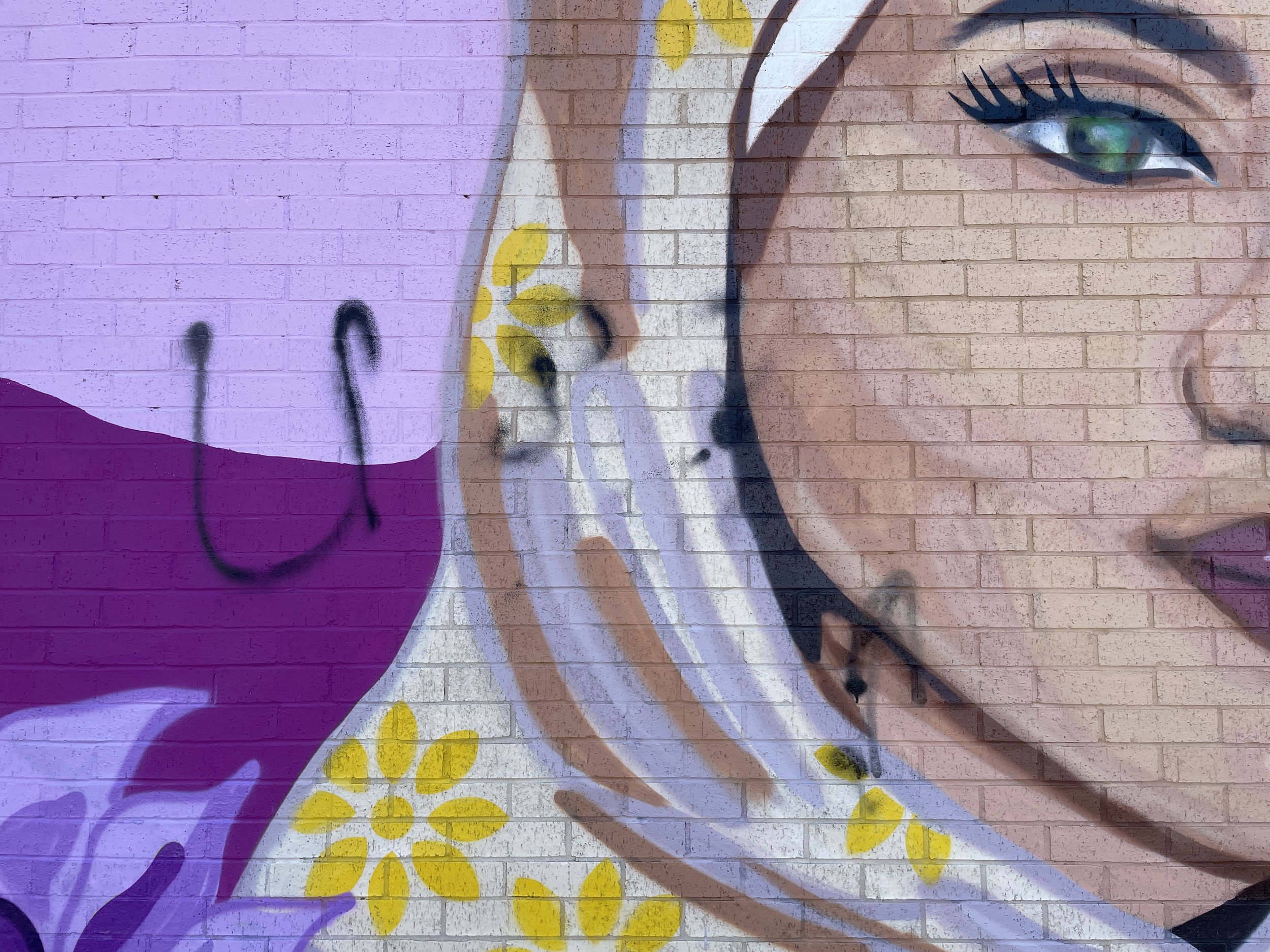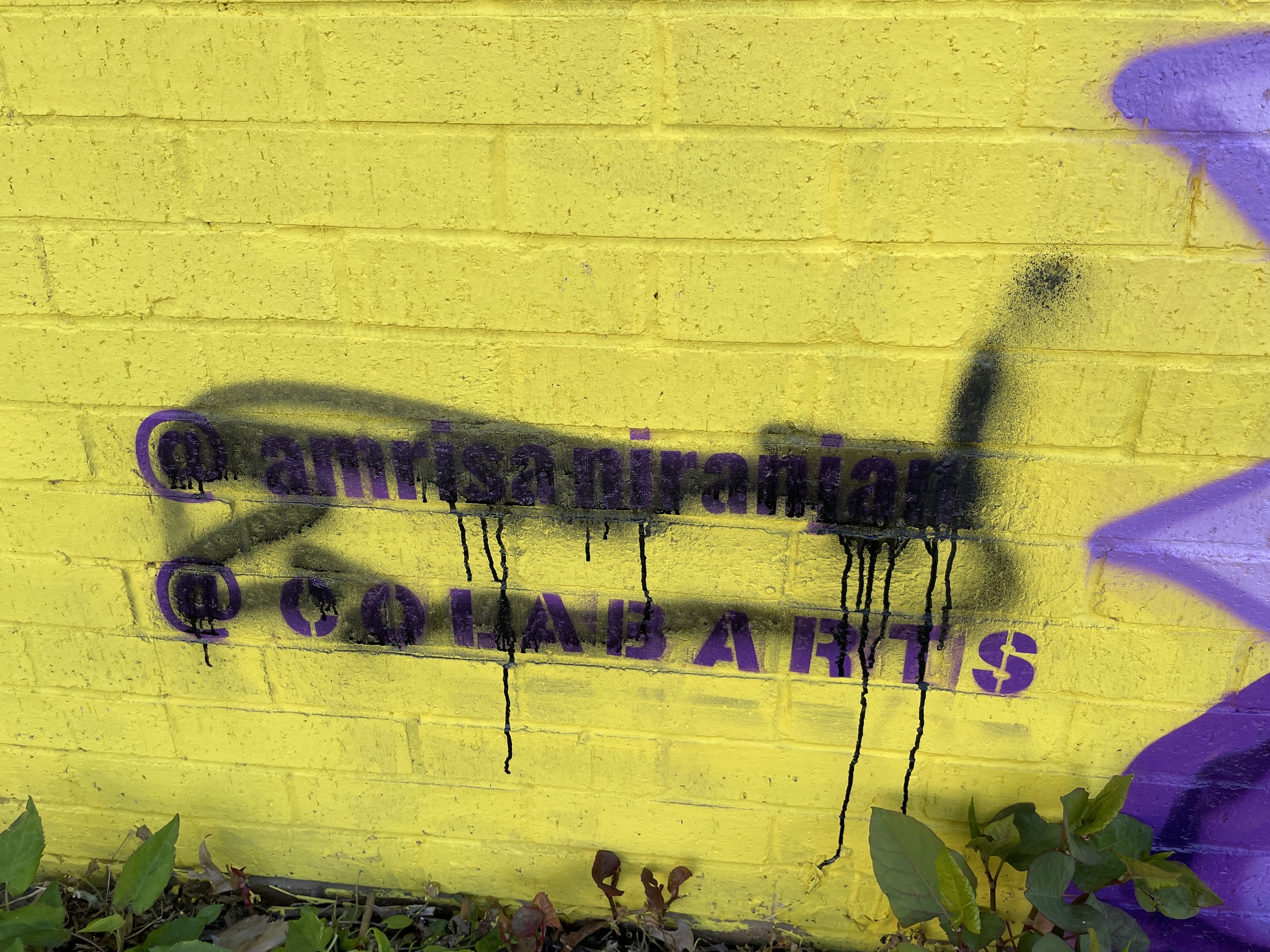April 30, 2022
As the team behind the Shelter project, which sponsored the recently-completed mural “Home is Where We Make It,” in Highland Park, we write to affirm the intentions behind the artwork and to condemn the acts of bigotry surrounding it. During the course of the mural installation over the past two weeks, the artist was directly racially harassed on three distinct occasions, and for the first time in her career felt in danger while installing a work of art. Now, less than 48 hours after its completion, it has been vandalized twice.
The harassment of the artist and defacement of this work of art is not mere public comment. The letters “USA” and two Stars of David placed over a depiction of a girl wearing hijab communicate exclusion and hate.
The mural focuses on local refugee and asylee resettlement efforts over the last couple of years, and represents community conversations with service providers and clients from Interfaith-RISE and D.I.R.E. at RCHP-AHC, and Black Community Watchline. The main focal point of the mural is the three portraits referencing refugees we spoke with, representing areas of Northeast Africa and the Middle East around the Red Sea. The main theme illustrated in the piece is "radical hospitality" - a willingness to challenge one's own comfort for the sake of another's - an idea that we've seen practiced by those who serve these particular communities, and that we believe is a value held by Highland Park as a whole.
The original creative vision for the mural centered hospitality as clearing a path for refugees and asylees to build lives and find homes in the United States. After community conversations, however, the creative team shifted direction in accord with our aim to document and understand what home and hospitality mean to our most vulnerable neighbors.The folks we spoke with pined for the opportunity to go home, and in some instances had already spent years in a refugee camp. For many of those interviewed, seeking refugee or asylee status was a last resort. Here, our understanding of hospitality changed.
Rather than depict representations of our new neighbors amidst symbols of Americana, then, the mural displays native flowers and the constellation orientation visible from the area between Eritrea and Syria. In doing so, we hoped to convey that hospitality demands recognition of the many places, cultures, and homes elsewhere that together inform our experience. We aspire to grow as an antiracist community, to extend safety and comfort to all people, and to welcome and honor our neighbors.
The Shelter Team
Colin Jager, Center for Cultural Analysis, Rutgers University
Dan Swern, coLAB Arts
Kristin O’Brassill-Kulfan, Rutgers University
Nathan Jérémie-Brink, New Brunswick Theological Seminary




